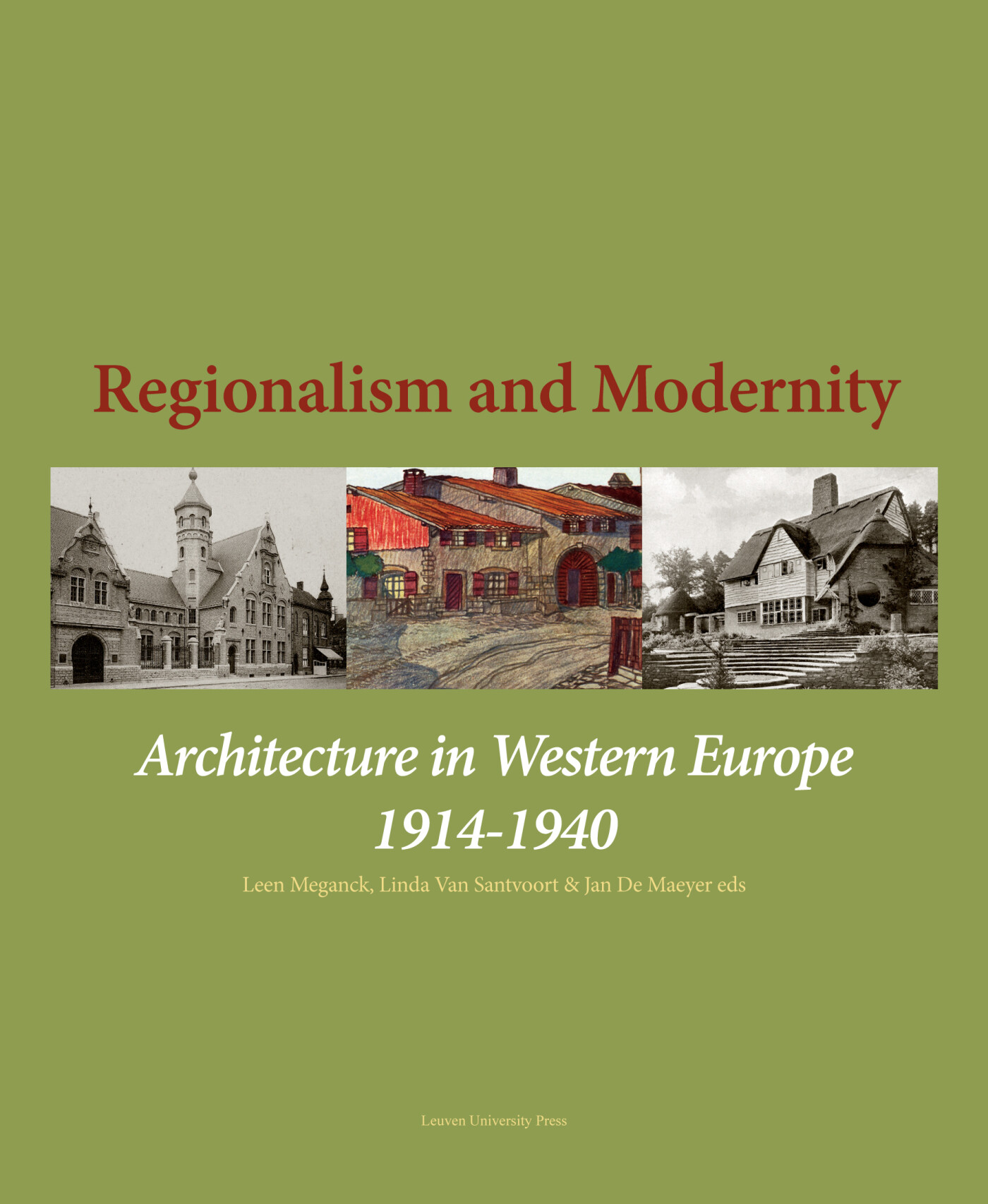
|
kadoc-artes 14: regionalism and modernity
leen meganck, linda van santvoort, jan de maeyer
With its search for purity, honesty, modesty, and ‘fitness of purpose', the late 19th and early 20th century concept of architectural regionalism is seminal to the modern movement. In later historiography, however, regionalism in Europe was neglected and even labeled ‘backward'. The origins of this drastic change of perception can be traced to the 1930s, when regionalism as a positive form gradually turned into a ‘closed' form of regionalism, a folding back on one's own region as a defence mechanism in an economically and politically turbulent decade. In this book internationally renowned researchers investigate the complex and shifting relation between regionalism and modernity in the architecture of Western Europe between the two World Wars, with a focus on Belgium, France, Germany, Italy, and Great Britain. They demonstrate that regionalism cannot be separated from modernity, but is in fact a way of dealing with modernity and its contradictions. Applied to architecture, regionalism is a means to moderate modernism, to embed the design in its local surroundings. It is seen as a result of the search for identity in a modernizing and globalizing world where tensions arise between diversity and superiority and among science, aesthetics, and ideology. The employment of regional forms and concepts is then used as an adaptation strategy, a way to facilitate modernity. Rather than rejecting regionalism as an anti-modern phenomenon, this book's contributors show that we should interpret regionalism as a striving for continuity within modernity. Contributors Hervé Doucet (University of Strasbourg); Kai Krauskopf (Technische Universität Dresden), Leen Meganck (Flanders Heritage Agency), Benoît Mihaïl (Police Museum Brussels), Lut Missinne (Westfälische Wilhelms-Universität Münster), Björn Rzoska (Groen), Michelangelo Sabatino (University of Houston), Vanessa Vanden Berghe (University of East London), Johan Van den Mooter (Kempens Landschap), Evert Vandeweghe (Ghent University), Jean-Claude Vigato (École nationale supérieure d'architecture de Nancy)
With its search for purity, honesty, modesty, and ‘fitness of purpose', the late 19th and early 20th century concept of architectural regionalism is seminal to the modern movement. In later historiography, however, regionalism in Europe was neglected and even labeled ‘backward'. The origins of this drastic change of perception can be traced to the 1930s, when regionalism as a positive form gradually turned into a ‘closed' form of regionalism, a folding back on one's own region as a defence mechanism in an economically and politically turbulent decade. In this book internationally renowned researchers investigate the complex and shifting relation between regionalism and modernity in the architecture of Western Europe between the two World Wars, with a focus on Belgium, France, Germany, Italy, and Great Britain. They demonstrate that regionalism cannot be separated from modernity, but is in fact a way of dealing with modernity and its contradictions. Applied to architecture, regionalism is a means to moderate modernism, to embed the design in its local surroundings. It is seen as a result of the search for identity in a modernizing and globalizing world where tensions arise between diversity and superiority and among science, aesthetics, and ideology. The employment of regional forms and concepts is then used as an adaptation strategy, a way to facilitate modernity. Rather than rejecting regionalism as an anti-modern phenomenon, this book's contributors show that we should interpret regionalism as a striving for continuity within modernity. Contributors Hervé Doucet (University of Strasbourg); Kai Krauskopf (Technische Universität Dresden), Leen Meganck (Flanders Heritage Agency), Benoît Mihaïl (Police Museum Brussels), Lut Missinne (Westfälische Wilhelms-Universität Münster), Björn Rzoska (Groen), Michelangelo Sabatino (University of Houston), Vanessa Vanden Berghe (University of East London), Johan Van den Mooter (Kempens Landschap), Evert Vandeweghe (Ghent University), Jean-Claude Vigato (École nationale supérieure d'architecture de Nancy) |